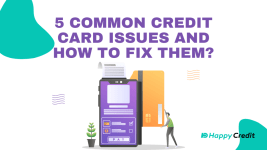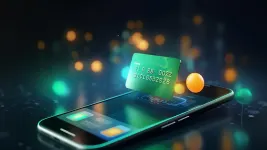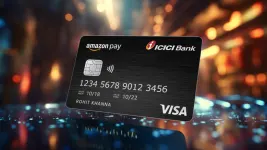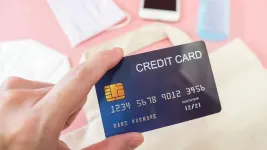Loan Vs Credit A Comprehensive Guide [August, 2024]
Personal financing can be of many types. Two such types of personal financing are credits and loans. In essence, loans and credits are similar since both come under banking products and provide capital support to borrowers. However, their objectives, nature, and definitions differ.
The primary difference between personal loans vs credit cards is that while a personal loan provides the entire amount at a time, a credit card comes with a pre-approved limit, and the cardholder may withdraw the amount they need. The following sections discuss the most prominent differences between loan and credit, personal loan vs credit card and line of credit vs credit card in particular.

Loans
Financial institutions grant loans to eligible borrowers requiring funds for various reasons. A loan provides the borrower with an assured sum of money, and the borrower promises to pay back the amount borrowed (read, principal) and the interest within a predefined time. While approving a loan, the lender enters into a contract with the borrower that clearly states the amount and the time frame the borrower needs to repay the loan amount plus the interest. Loan repayments are usually made through monthly instalments, also known as EMI (Equated Monthly Instalment).
It is worth noting that the contract ceases to exist when a borrower repays the entire principal and interest to the lender. So, after the expiration of the contract, no party owes anything to anyone. And if the borrower needs more funds, they can apply for new loans.
Time Frame for Loan Repayment
The time frame of a loan depends on its type: short-term or long-term. The time frame also depends on the preferences of the borrower. Personal loans are typically considered short-term loans, whereas home or mortgage loans are usually classified as long-term loans.
The time frame, as well as the loan amount, also depend on the borrower’s creditworthiness. Lenders usually check the credit score of a borrower before approving a loan. If the borrower is creditworthy, lenders do not mind increasing the loan amount and decreasing the repayment term. However, if the borrower has a proven record of default, lenders may reduce the loan amount and increase the repayment term since an extended period means a lower EMI.
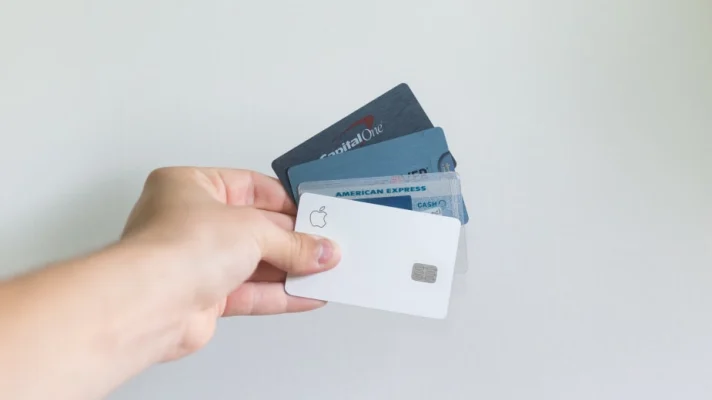
Loan Types
Loans are generally of two types: secured and unsecured.
- Secured loans are loans issued against collateral. The collateral depends on the nature of the loan. For instance, a gold loan provides money against gold. When availing of a secured loan, the borrower has to accept that the lender may liquidate the collateral to recover the outstanding debt should the borrower fail to repay the loan principal and interest despite receiving multiple warnings. However, you don’t have to worry about anything as long as you pay your EMIs regularly. The interest rates of secured loans are typically lower than unsecured loans.
- Alternatively, an unsecured loan does not need any collateral. So, while learning about a personal loan vs a credit card, know that both are unsecured credit types. Since unsecured loans do not require collateral, the loan amount is usually less than for collateral-backed secured loans. Also, unsecured loan interest rates are generally higher than most secured loan types. While approving an unsecured loan, the lender verifies the borrower’s credit history and approves the loan only if the borrower’s credit score is above a threshold.
Now that you know what a loan is, let’s discuss personal loan vs credit card and line of credit vs credit card debate.
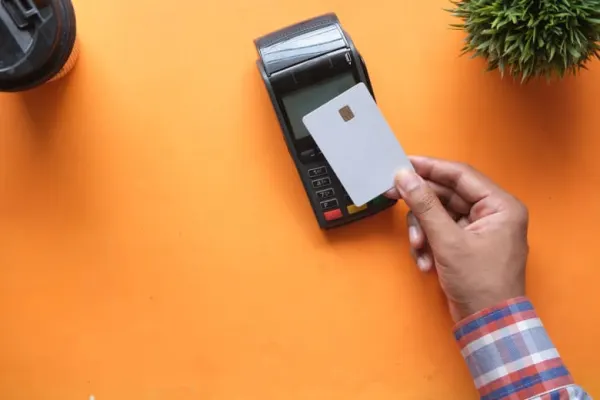
Credit: Definition, Expenses, and Limits
Although credit is similar to a loan, since banks approve both, their mechanisms are different. While a loan provides you with the entire amount in one go, a credit does not provide you with the whole amount in one instalment. Instead, it approves a limit based on your credit profile, and you can use it as a cash advance.
Unlike a loan, credit is a form of flexible financing, as you can use the money you need and pay interest only on the amount spent and not on the entire approved amount. It is worth noting that the limit may increase based on how well you handle your credit score. If you repay regularly and do not default, the credit provider may increase your credit limit, and vice versa.
Expenses Associated With Credit
Although credit is more flexible than loans, the expenses associated with credit are almost always higher than loans. You pay interest only on the amount you spend. Credit providers often levy a minimum fee, irrespective of whether you use the credit.
Limits Associated With Credit
As mentioned, credit is always associated with a limit. The limit depends on your credit profile. You can withdraw the amount as required, provided the net withdrawal amount is within the limit set by the credit provider.

Line of Credit Vs Credit Card
The following section specifies everything you must know about the line of credit vs credit card:
- The primary difference between a line of credit and a credit card is that while credit cards are usually attached to lines of credit, the opposite might not be true. Hence, any credit card can be called a line of credit, but not every line of credit is a credit card.
- Regarding limits, a line of credit’s APR, or Annual Percentage Rate, is generally lower than the credit card APR. Also, a line of credit’s limit might be slightly higher than a credit card’s.
- Regarding rewards, credit cards provide excellent cashbacks and rewards on shopping or spending. However, lines of credit usually have no such benefits associated with them.
So, whether you want to apply for a line of credit or a credit card depends on your needs and usage patterns.

Conclusion
While both loans and credits are meant to offer financial support to borrowers, the ways they function are widely different. This article discussed personal loans vs credit cards and line of credit vs credit cards in detail so that you can make an informed decision based on your financial situation and requirements.
FAQs
Q. What is the main difference between a loan and a credit?
Ans. The top difference between a loan and a credit is that while a loan provides you with the entire amount in one go, a credit approves a limit, and the borrower can withdraw it in whole, part, or nothing at all.
Q. Personal Loan Vs. Credit Card: which is better?
Ans. Both personal loans and credit cards offer unique benefits. Personal loan interest rates are usually lower than credit card APR. However, a credit card is more flexible since you can withdraw only the amount you need and pay interest only on the withdrawn amount and not on the whole amount as in a loan.
Q. What is the difference between a line of credit and a credit card?
Ans. The difference between a line of credit and a credit card is that while a line of credit may not have a credit card attached, a credit card is a form of a line of credit. In essence, both provide flexible financing to borrowers.
Q. What is the limit on a credit card?
Ans. Limit refers to the maximum amount you can withdraw using your credit card. The limit typically depends on the cardholder’s credit profile. If the cardholder clears off their dues regularly, the card provider may increase the limit.

Product prices and availability are subject to change. Any price and availability information displayed on merchant's site at the time of purchase will apply to the purchase of these products. HappyCredit is a participant in the Amazon Services LLC Associates Program, an affiliate advertising program. As part of this program, we may earn commission from qualifying purchases made through the affiliate links provided on this website. We only promote products on Amazon that we genuinely believe are of high quality and value to our audience. The inclusion of affiliate links does not influence our editorial content or product recommendations. Our primary goal is to provide useful information and help you make informed purchasing decisions.
Certain portions of the text in this article might have been created using AI tools and subsequently edited by the author to improve the overall quality and clarity of the content for readers.
![Loan Vs Credit A Comprehensive Guide [August, 2024] Loan Vs Credit A Comprehensive Guide [August, 2024]](https://happycredit.in/cloudinary_opt/blog/opt-sccxz.webp)
